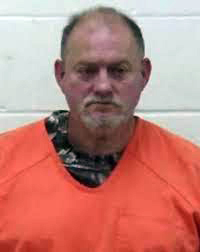
ULAANBAATAR, Mongolia (BP)–Clutching X-rays and records, Dr. A.H. “Buck” Rusher cuts a path through the crowd of Mongolians to open the clinic.
A 47-year-old patient describes his difficulty breathing. Listening to his chest with a stethoscope, “Dr. Buck” makes a difficult assessment of his being in the initial stages of lung failure.
“You can’t make a bad lung good,” Rusher said. “You can only make it worse. I’m afraid if we do the operation, he will die. It’s better for nature to end his life than me.”
An hour and eight patients later, the clinic closes. The award-winning general surgeon dons teal scrubs, cinching them around a frame 15 pounds lighter than two years ago when he began serving at the clinic as an International Service Corps short-term missionary.
Pounding down the surgical wing of Ulaanbaatar’s First State Hospital, Rusher scrubs in for surgery in a prep room a thousand miles from the rural hospital he visited last week. The operating room is quiet except for the beeps of the heart monitor.
“Lord, help us with this case,” Rusher says.
Dr. Nyamkhuu nods in agreement. He came to faith 10 years after he first heard the Gospel.
“When I met him, it became important to learn Mongolian so I could tell him about Jesus,” Rusher recalled. “The friendship superseded language.”
The doctors have offered their services to small aimag (regional) hospitals. In the western city center of Khovd, they also offered surgeons “The Purpose Driven Life” book and New Testaments. Some of the surgeons came to where they were staying, asking what Christians believe. Nyamkhuu, a renowned surgeon in Mongolia, shared his faith with them.
Nyamkhuu is one of three physicians Rusher brought to the United States for training following Rusher’s first short-term visit to Mongolia. While there in 1993, Rusher was moved by the medical community having a chance to progress after communism. Although they didn’t share a language, Rusher took the doctors to his practice and home in Jonesboro, Ark., for one month. The trio trained in laparoscopy, becoming the first laparoscopic surgeons in Mongolia.
Rusher said the training involved “a lot of gesturing, pointing and diagramming. I looked like a mother duck with goslings behind me.”
One year later, saying goodbye to one of the doctors was a defining moment in Rusher’s Mongolian journey. After a meal celebrating Rusher’s second trip to the country, the entire group contracted food poisoning. Three days later when Rusher was stable enough for a medical evacuation out of the country, he first went to check on his doctor friend.
“I looked at him, he looked at me, and we both knew he was going to die,” Rusher said. “We stood around his bed and cried. Had he been in a more developed place, he wouldn’t have [died]. I am really grieved … that if I hadn’t been sick, I could have attended to him.”
That grief could have kept Rusher from returning to the country. Instead, the loss of a life he’d invested so much into fueled him to reach one of its influential people groups — doctors. Responding to a request for Southern Baptists to serve as overseas medical workers, Rusher and his wife, Pam, began their service in Mongolia in 2001. The move fulfilled his life-long dream to use his skills in vascular, chest and abdomen surgery for Christ.
“As a result of finding the Lord, [doctors’] lives have completely changed,” Rusher said. “Their wives see something different in them — hope.”
A group of doctors formed an English Bible study in 2006 that later became a church. For their Easter service this year at a cancer hospital, the newly christened Shine Alxam (New Steppes) church had a high attendance of nearly 50 people. As Christians, they now have a far different perspective on life than Buddhist doctors and their patients.
Buddhist patients “feel life is not all that valuable because you come back,” Rusher said, explaining the belief in reincarnation. Buddhist doctors “don’t see death like I do. I see somebody’s heading to eternal life.”
Holding on to precious life takes perseverance. Making rounds before surgery, Rusher finds a man fiddling with his wife’s stomach drain, causing the tube to reverse the bacteria. As Rusher walks into the intensive care unit, a doctor teaching a group of residents asks him for a consult. Rolling the patient over, Rusher discovers bed sores. These cases provide teaching opportunities.
“If they notice my lapel pin or manner of treating nurses, maybe they’ll see that I’m following the Great Physician,” he said.
Mongolia’s medical field consists of 6,637 doctors for the country’s 2.5 million people — one doctor for every 375 people. Mongolians don’t go into medicine for the money. After paying for school and their 18-month residency, each makes approximately $150 per month through the socialized system, whether serving as a cardiac surgeon or a general practitioner.
But Rusher is grateful for the opportunity he has had to make an eternal impact on their lives.
“I’ve had an open invitation to do what I want to do,” Rusher said of his and Pam’s service in Mongolia. “This is our people. When we’re home, our prayer is for Mongolia.”
The Rushers completed their International Service Corps term of service in May.
Anyone interested in using medical skills in Mongolia can e-mail [email protected] for more information. Specialists in fields such as gynecology, radiology and pediatrics are highly respected in the Asian country.
–30–
Dea Davidson is a writer for the International Mission Board.
















